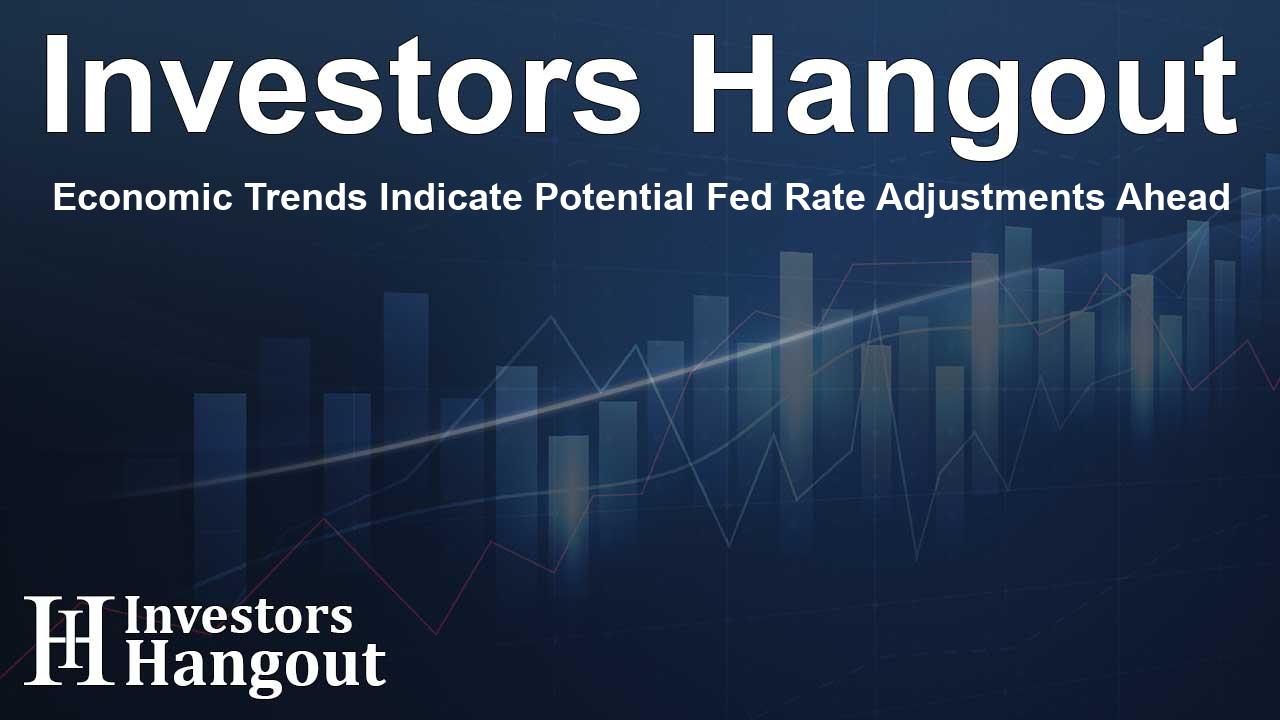Economic Trends Indicate Potential Fed Rate Adjustments Ahead

Economic Landscape Shifts: A Look Ahead
Recent trends in the economy have sent mixed signals regarding the resilience of the current market. Stocks have shown vulnerability as investors digest the implications of weak employment reports and the introduction of unexpected tariffs on a number of trading partners. In this environment, economic indicators have suggested a potential slowdown, creating an atmosphere of uncertainty among market participants.
The latest employment statistics from the Bureau of Labor Statistics revealed disappointing numbers, significantly coming in lower than Wall Street projections. Moreover, revisions to the previous months' data reflected even weaker hiring patterns than first reported, prompting many investors to rethink their forecasts about the economy's strength.
This adjustment to the job market illustrates a shift from a previously steadfast economic outlook to one that is more cautious. Earlier reports had indicated that despite potential disruptions from tariffs, the economic framework remained robust, but growing evidence of a slowdown has now raised alarm bells. Investors are re-evaluating their positions as they reassess the impact of these tariffs on economic growth.
The Fed's Response: Monitoring Economic Indicators
Federal Reserve Chair Jerome Powell recently indicated that any potential adjustments to interest rates will depend heavily on upcoming economic data. The discrepancy in job growth and the impact of tariffs has prompted the Fed to adopt a watch-and-wait strategy. This cautious approach suggests that if employment metrics continue to deteriorate, a more proactive stance may be necessary.
The implications of trade policies have been a significant point of discussion, as Powell noted the lagging effects these changes tend to have on tangible economic data. Investors wonder if upcoming jobs reports will mirror previous patterns or start to paint an even more complex picture of the labor market.
Employment Challenges: Job Growth Insights
Analyzing the recent nonfarm payroll report shows a stark contrast to economists' benchmarks. Only 73,000 jobs were added, a concerning sign when compared to previous expectations. The breakdown of these numbers indicates a net addition of private-sector roles, yet a decline in government positions stemming from broader economic strains.
Additionally, the overall economic landscape reveals that sectors typically insulated from broader economic forces, like healthcare, contributed positively, while more sensitive industries like manufacturing suffered losses. This juxtaposition raises questions about where growth can realistically be expected moving forward.
Furthermore, the downward revision of job numbers for the preceding months highlights the fluctuating environment businesses are navigating. Average job growth has dipped alarmingly, suggesting companies may be holding back on hiring amid economic uncertainties.
Inflation Trends and Consumer Sentiment
Inflationary pressures are also part of the mix, with the latest Consumer Price Index revealing a notable uptick in prices. While goods have seen a hike partially attributable to tariffs, services inflation seems to be stabilizing, at least for now. This coexistence of rising costs and stagnant growth in consumer spending complicates the Fed's decision-making process.
Future Projections and Market Implications
As we navigate these uncertain waters, market predictions evolve rapidly. Expectations of interest rate cuts by the Federal Reserve have surged, with many anticipating adjustments in the coming weeks based on forthcoming inflation and job data. An environment of high uncertainty necessitates prudence in financial planning and investment strategies.
Nonetheless, while the immediate future appears cloudy, it serves as a reminder of the importance of diversification in investment portfolios. The evolving economic landscape will inevitably bring opportunities, and a diversified approach could help seize these potential gains.
Frequently Asked Questions
What recent economic indicators have affected market confidence?
The recent weak employment data, combined with rising tariffs, has led to increased uncertainty in market confidence, affecting stock performance and investor sentiment.
How has the Federal Reserve reacted to the current economic climate?
The Federal Reserve has taken a cautious approach, indicating that they will closely monitor economic indicators before making any interest rate adjustments.
What does the latest jobs report indicate about the employment market?
The latest jobs report showed a disappointing addition of only 73,000 jobs, prompting concerns about the stability of the labor market amid evolving economic pressures.
How are inflation trends influencing economic forecasts?
Inflation trends, particularly due to tariffs on goods, are complicating economic forecasts as they put upward pressure on prices while economic growth appears sluggish.
What strategies should investors consider in this economic environment?
Investors are encouraged to maintain a diversified portfolio to navigate the unpredictable economic landscape and capitalize on emerging opportunities.
About The Author
Contact Hannah Lewis privately here. Or send an email with ATTN: Hannah Lewis as the subject to contact@investorshangout.com.
About Investors Hangout
Investors Hangout is a leading online stock forum for financial discussion and learning, offering a wide range of free tools and resources. It draws in traders of all levels, who exchange market knowledge, investigate trading tactics, and keep an eye on industry developments in real time. Featuring financial articles, stock message boards, quotes, charts, company profiles, and live news updates. Through cooperative learning and a wealth of informational resources, it helps users from novices creating their first portfolios to experts honing their techniques. Join Investors Hangout today: https://investorshangout.com/
The content of this article is based on factual, publicly available information and does not represent legal, financial, or investment advice. Investors Hangout does not offer financial advice, and the author is not a licensed financial advisor. Consult a qualified advisor before making any financial or investment decisions based on this article. This article should not be considered advice to purchase, sell, or hold any securities or other investments. If any of the material provided here is inaccurate, please contact us for corrections.
